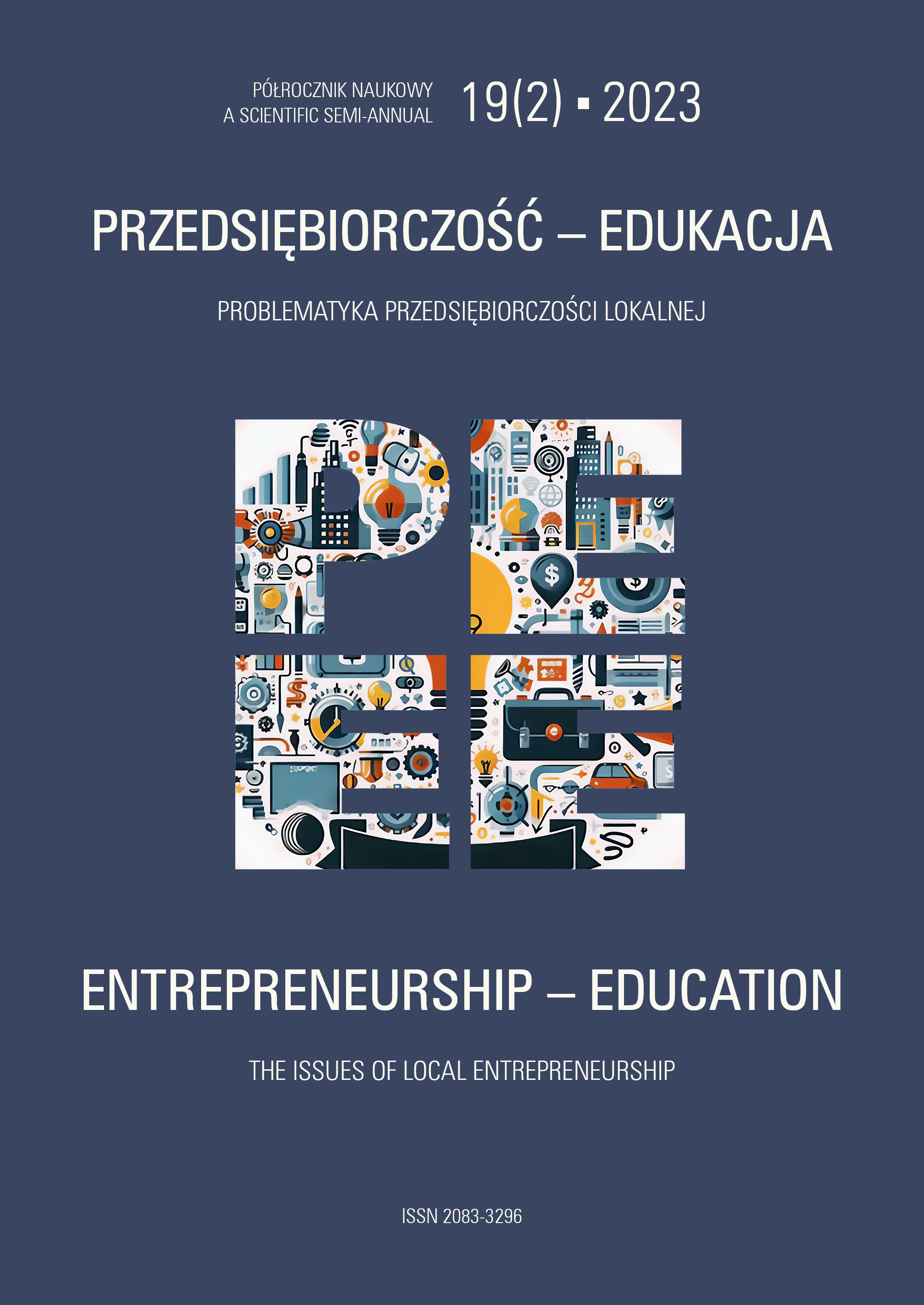Foreign internships and the level of subjective assessment of practical skillsvocational schools students
DOI:
https://doi.org/10.24917/20833296.192.9Keywords:
foreign internships, personal and social skills, practical skills, vocational schools studentsAbstract
The aim of the article is to analyse the impact of the vocational schools students participation in foreign internships on their practical skills. The research hypothesis states that foreign internships have a significant impact on the level of subjective assessment practical skills of vocational school students. The article assessed the subjective level of students’ practical skills before and after the foreign internship. The research covered students of The Comprehensive and Vocational School Complex in Mońki carrying out internships in Valencia (Spain) in 2020–2022. A total of 106 students representing the following fields of vocational education participated in foreign internships: agricultural mechanization technician, hotel management technician, nutrition and catering services technician, sales technician and railway transport technician. The vast majority of respondents stated that participation in a foreign internship contributed to improving the level of practical skills necessary for their chosen profession. According to the students, the most important skills directly related to the field in which they pursue the education process have been improved. The internship participants expanded their personal and social competences and improved their level of English in the area of specialized professional vocabulary. This form of practical education is therefore an excellent element of education in technical secondary schools.
References
Cymańska -Grabowska, B., Chorąży, D., Fabiański, A., Kordyś, W. (2021). Modelowy program praktycznej nauki zawodu odnoszący się do stażu uczniowskiego, Warszawa. Pozyskano z: https://kuratorium.kielce.pl/wp -content/uploads/2022/03/zalacznik-1-technik -hotelarstwa.pdf
Drogosz -Zabłocka, E., Stasiowski, J. (2019). Kształcenie zawodowe w Polsce – przemiany, organizacja, efekty. W: Wykształcenie zawodowe. Perspektywa systemu edukacji i rynku pracy, U. Sztanderska, E. Drogosz -Zabłocka (red.), Seria Naukowa, t. 9, Warszawa: Fundacja Rozwoju Systemu Edukacji, 66–101.
Gates, L. (2014). The impact of international internships and short -term immersion programs. New Directions for Student Services, 146, 33–40.
Iwacewicz -Orłowska, A. (2021). Motywy i korzyści z uczestnictwa w zagranicznych praktykach zawodowych uczniów szkół ponadpodstawowych z województwa podlaskiego. Przedsiębiorczość – Edukacja [Entrepreneurship – Education], 17(2), 137–150.
Maj -Waśniowska, K. (2017). Niestabilność warunków funkcjonowania systemu oświaty w Polsce. Prace Naukowe Uniwersytetu Ekonomicznego we Wrocławiu, 485, 262–276.
Matthews, J., Lawley, M. (2011). Student satisfaction, teacher internships, and the case for a critical approach to international education. Discourse: studies in the cultural politics of education, 32(5), 687–698.
Pinto, L.H., Pereira, P.C. (2019). ‘I wish to do an internship (abroad’)’: Investigating the perceived employability of domestic and international business internships. Higher Education, 78, 443–461.
Sitek, M., Stasiowski, J. (2022). Zmiany w organizacji i funkcjonowaniu kształcenia zawodowego w Polsce. Bilans reform 1989–2022. Studia BAS, 2, 71–93.
Szczechowiak, E. (2018). Nowa podstawa programowa szkół ponadpodstawowych a oczekiwania pracodawców względem ich absolwentów. Zeszyty Naukowe Wyższej Szkoły Humanitas. Pedagogika, 16, 99–109.
Van Mol, Ch. (2017). Do employers value international study and internships? A comparative analysis of 31 countries. Geoforum, 78, 52–60.
Xiaochi, Z. (2012). Discussion on international internship and intercultural competence from a perspective of higher educational internationalization – A case study of the program work and travel USA. Cross ‑Cultural Communication, 8(5), 62–66.
Downloads
Published
How to Cite
Issue
Section
License
Copyright (c) 2023 Entrepreneurship – Education

This work is licensed under a Creative Commons Attribution-NoDerivatives 4.0 International License.
Articles are published under the terms of the Creative Commons License (CC BY-ND 4.0; Attribution– NoDerivs).

